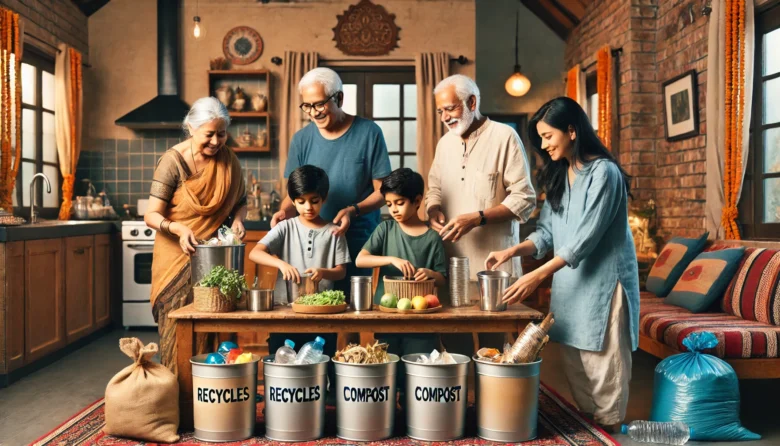In our rapidly changing world, the sociology of waste and understanding consumption patterns have become critical topics. Waste management in India is a pressing issue, but by examining our consumption habits, we can make a significant difference. In this blog, we’ll explore the sociology of waste and how it impacts our environment and society.
Introduction to the Sociology of Waste
Waste production is an unavoidable consequence of human activities. From the meals we consume to the items we purchase, waste is always generated in the end. But why do we produce so much waste, and how does our consumption behavior influence it? The sociology of waste delves into these questions, examining the cultural, economic, and social factors that drive our consumption patterns.
Understanding Consumption Patterns in India
India, with its diverse population and booming economy, presents a unique case study in consumption patterns. The surge in urbanization and the expanding middle class have fueled a rise in consumerism. This shift has significant implications for waste generation and management.
Urbanization and Waste
With more individuals moving to cities in pursuit of better opportunities, urban regions are growing at an extraordinary pace. This urban sprawl results in increased waste production. Cities like Mumbai, Delhi, and Bangalore generate thousands of tons of waste daily, putting immense pressure on waste management systems.
Cultural Factors
India’s rich cultural diversity also plays a role in consumption patterns. Festivals, weddings, and other celebrations often lead to excessive waste. For instance, during Diwali, the amount of plastic and food waste generated spikes significantly.

The Role of Economic Factors
Economic progress has pulled millions out of poverty, yet it has also spurred a higher demand for goods. With higher disposable incomes, people are buying more products, many of which are non-essential. This surge in consumerism is evident in the rise of shopping malls, e-commerce platforms, and fast fashion.
The Environmental Impact of Waste
The environmental consequences of our consumption patterns are dire. Landfills are overflowing, rivers are polluted with plastic waste, and air quality is deteriorating. The Ganga and Yamuna rivers, considered sacred, are among the most polluted due to industrial discharge and plastic waste.
Plastic Pollution
Plastic is a major contributor to waste in India. From packaging to single-use items, plastic is ubiquitous. Despite bans on certain plastic products, enforcement remains a challenge. The plastic waste crisis is exacerbated by inadequate recycling infrastructure and public awareness.
Government Initiatives and Policies
The Indian government has recognized the waste management crisis and introduced several initiatives to address it. The Swachh Bharat Abhiyan (Clean India Mission) aims to promote cleanliness and reduce waste. Additionally, the Plastic Waste Management Rules, 2024, mandate extended producer responsibility (EPR) for manufacturers.
Community Efforts and Innovations
While government initiatives are crucial, community efforts and innovations are equally important in tackling waste. Across India, various NGOs, startups, and individuals are pioneering sustainable practices and waste management solutions.
Zero-Waste Initiatives
Several communities are adopting zero-waste lifestyles, emphasizing minimalism and sustainable consumption. Cities like Pune and Mysore have implemented successful waste segregation and composting programs, significantly reducing landfill waste.
Innovative Startups
Startups like Daily Dump (composting solutions) and Saahas Zero Waste (waste management services) are making a difference. They provide eco-friendly alternatives and create awareness about sustainable living.
The Role of Education and Awareness
Raising public awareness about the critical importance of waste management and sustainable consumption is essential. Schools, colleges, and workplaces can play a pivotal role in spreading awareness and encouraging responsible behavior.
School Programs
Integrating waste management and sustainability into school curriculums can instill eco-friendly habits from a young age. Programs like the Green Schools Program by the Centre for Science and Environment (CSE) are excellent examples.
How You Can Make a Difference
Every individual can contribute to reducing waste and promoting sustainability. Here are some practical steps you can take:
Reduce and Reuse: Opt for reusable items instead of single-use products.
Segregate Waste: Separate your waste into biodegradable, recyclable, and non-recyclable categories.
Compost: Start composting your kitchen waste to reduce landfill burden.
Support Eco-Friendly Brands: Choose products from brands that prioritize sustainability and ethical practices.
Spread Awareness: Inform your family and friends about the significance of waste management.
Conclusion
The sociology of waste and understanding consumption patterns are crucial for addressing India’s waste management crisis. By examining the cultural, economic, and social factors influencing our consumption, we can develop more effective strategies for waste reduction. Every individual has a part to play in fostering a cleaner and more sustainable India.
Author’s Note:
Thank you for reading! As we tackle the challenges of waste management, it’s crucial to remember that small adjustments in our daily routines can have substantial effects. Let’s work together to make India cleaner and greener.
G.C., Ecosociosphere contributor.




